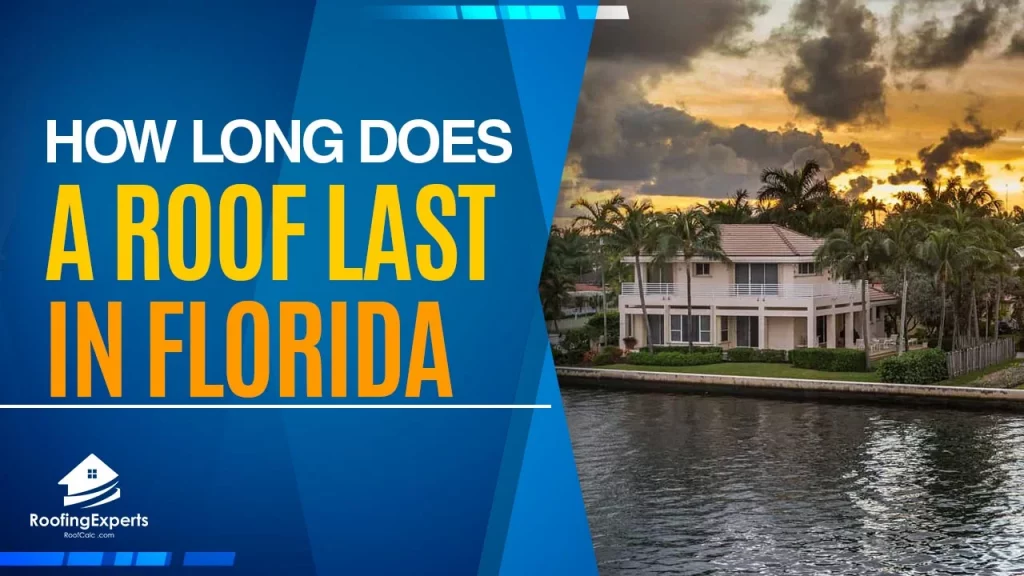
Living in Florida comes with many perks, but it also means dealing with the intense heat, high humidity, and frequent storms.
For homeowners, this means selecting a roof that can withstand Florida’s harsh climate and last for years to come. But with so many factors affecting a roof’s lifespan, it can be hard to know which material is best suited for your home.
In this article, we’ll take a deep dive into how long roofs typically last in Florida and what factors you should consider when selecting a roof. With this knowledge, you’ll be able to make an informed decision and protect your home from the elements.
How Long Do Roofs Last in Florida?
Average Roof Lifespan In Florida
In Florida, the average roof lifespan is generally between 15 to 20 years. However, this lifespan varies depending on the type of roofing material used.
For example, asphalt shingle roofs tend to last between 15 to 35 years, while tile roofs can last from 25 to 50 years or even up to 100 years in some cases. Metal roofs typically have a life expectancy of 15 to 50 years in the Florida climate, making them an ideal choice for the region.
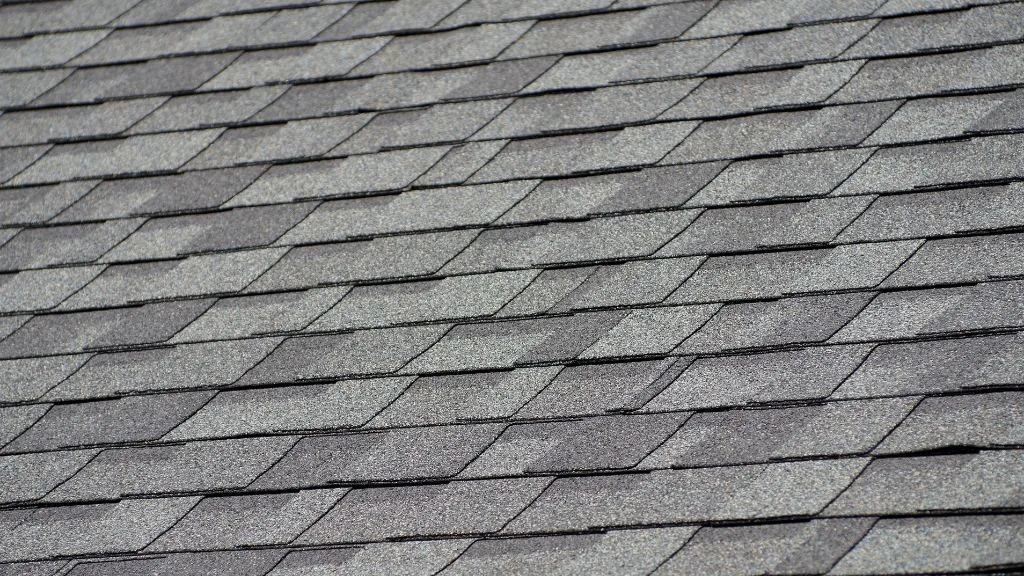
Factors Affecting Roof Lifespan In Florida
There are several important factors that influence the longevity of your roof in Florida:
- Climate: Florida experiences high heat, humidity, and hurricanes or tropical storms, which can cause wear and tear on your roofing materials.
- Roofing Material: The type of roofing material, such as asphalt shingles, metal, or tile, affects the durability and lifespan of your roof.
- Maintenance: Regular maintenance, including cleaning and inspections, can help extend the life of your roof.
- Quality of Materials and Installation: High-quality materials and professional installation can significantly impact the longevity of your roof.
- Exposure to Salt Air: If your property is located near the coast, your roof can be exposed to salt air, which may cause corrosion or deteriorate some roofing materials, such as asphalt shingles.
To protect your Florida home and ensure a long-lasting roof, take the time to choose high-quality roofing materials suited for the state’s climate and moisture levels, and opt for professional installation. Additionally, practice regular maintenance and inspections to catch any potential issues early on.
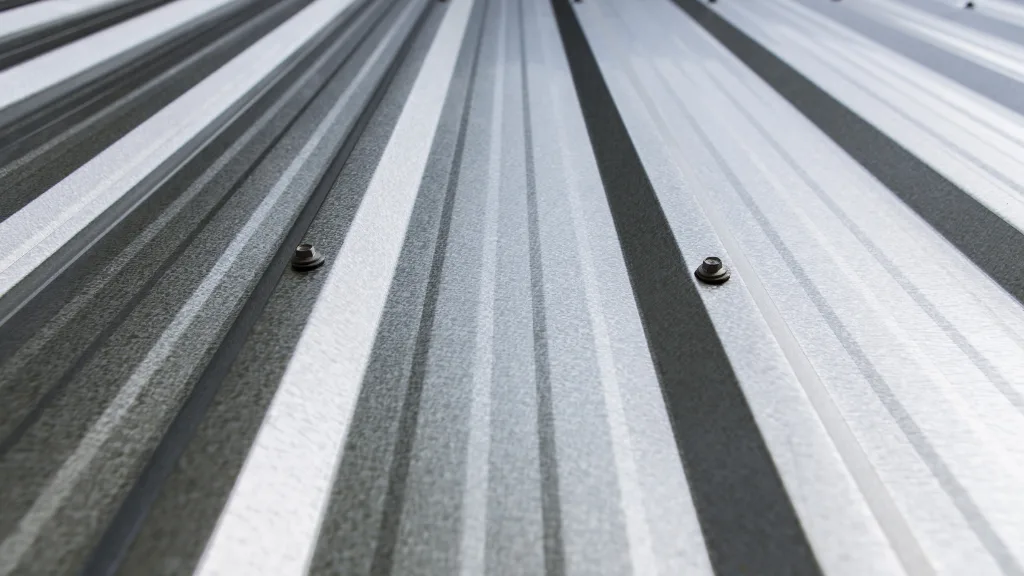
Types Of Roofs And Their Lifespans
Asphalt Shingle Roofs
Asphalt shingles are a popular roofing material in Florida. They are affordable, easy to install, and available in various colors and styles. The two types of asphalt shingles you can use are three-tab shingles and architectural shingles.
Three-tab asphalt shingles have a typical lifespan of around 25 years, while architectural shingles can last up to 30 years. However, the lifespan of these roofs can be influenced by environmental factors such as heat, humidity, and stormy weather common in Florida.
Tile Roofs
Tile roofs are another popular choice in Florida, thanks to their durability, ease of maintenance, and stylish appearance.
There are multiple types of tile roofs to choose from, such as concrete, clay, and terracotta tiles. Tile roofs tend to have a longer lifespan compared to asphalt shingles. Concrete tile roofs can last around 50 years, while clay and terracotta tiles can last for more than 100 years.
However, the tiles can be susceptible to cracking in extreme weather conditions or due to the pressure from heavy foot traffic.
Metal Roofs
Metal roofs offer excellent durability and long-lasting protection, making them an ideal choice for homes in Florida. Aluminum or steel roofs typically have a lifespan between 40 and 60 years, while high-end metal roofs made of materials like copper can last up to 150 years.
Furthermore, metal roofs can withstand the harsh weather conditions prevalent in Florida and can offer high wind resistance.
- Aluminum Roofs: 50 – 80 years
- Steel Roofs: 40 – 60 years
- Copper Roofs: 90 – 150 years
Wood Shingles
Wood shingles are an aesthetically appealing roofing material, but they might not be the best choice for Florida due to its humid climate and frequent storms.
Generally, wood shingles have a lifespan of 25 to 30 years. However, the high humidity levels in Florida can cause wood shingles to deteriorate faster, reducing their effective lifespan. So, carefully consider the factors that may impact the durability of wood shingle roofs before using them in Florida.
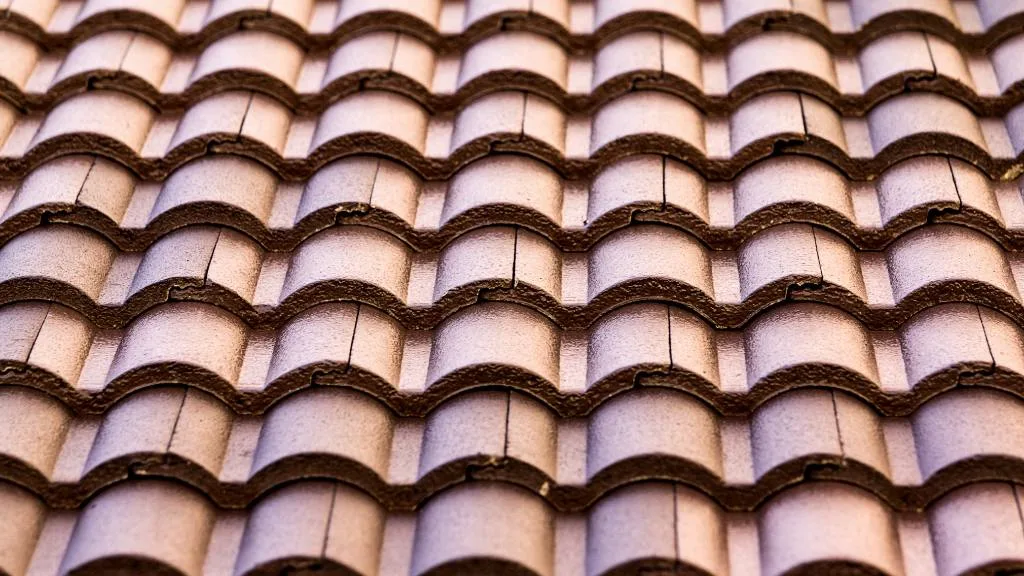
Influential Factors On Roof Longevity
Weather Conditions
In Florida, weather conditions play a significant role in the lifespan of your roof. The state is known for its hot, humid climate and frequent high winds, including hurricanes and tropical storms. These factors can impact your roof’s durability and longevity:
- High heat and UV rays: The intense heat in Florida and direct sunlight can break down organic roofing materials and cause premature aging.
- Humidity: High humidity levels can result in mold, mildew, and rot, affecting the structural integrity of your roof.
- High winds and hurricanes: The state is no stranger to hurricanes and tropical storms, which can cause significant damage to your roof and shorten its lifespan.
Environmental Conditions
Other environmental factors can also impact how long your roof lasts in Florida:
- Proximity to the coast: If you live closer to the coast, salt in the air can corrode metal roofs and degrade other materials, causing your roof to have a shorter lifespan.
- Ventilation: Proper ventilation keeps your roof cool, reducing thermal fatigue and prolonging its life. Be sure to keep your roof adequately ventilated in Florida’s hot and humid climate.
Installation And Material Quality
The quality of your roofing materials and the installation process directly affect your roof’s longevity. When considering a new roof, keep these factors in mind:
- Material selection: Different materials have varying lifespans. For example, asphalt shingle roofs can last between 15 to 20 years in Florida, while metal and tile roofs may last longer.
- Quality of installation: A properly installed roofing system is more likely to withstand Florida’s harsh weather conditions. Hire a reputable contractor to ensure that your roof is correctly installed and maintained.
By understanding these influential factors, you can make informed decisions about your roofing choices and extend the lifespan of your Florida roof.
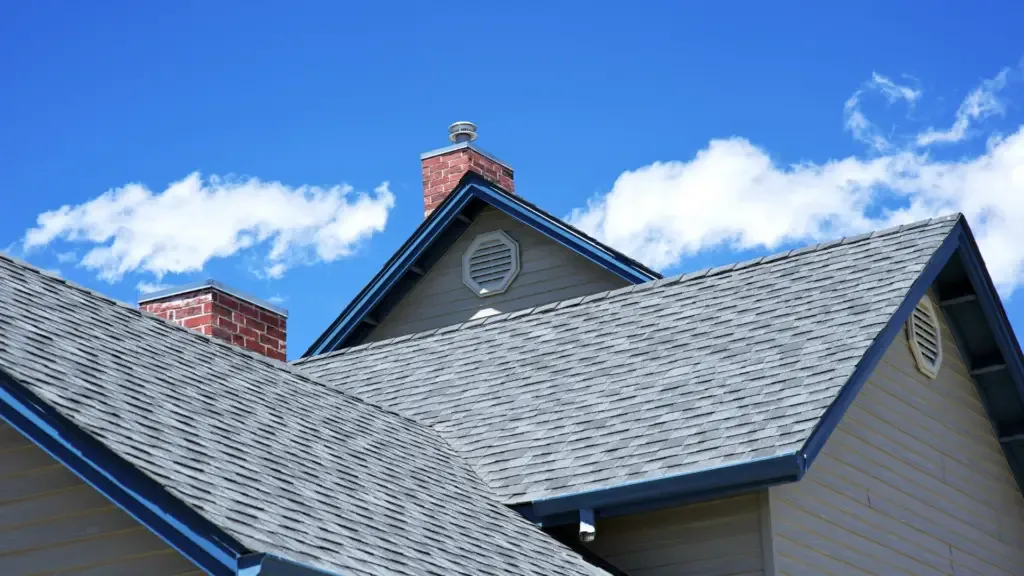
Maintenance Practices And Their Impact
Regular Roof Inspections
To maximize the lifespan of your roof in Florida, it’s crucial to conduct regular roof inspections. These inspections serve to identify potential issues early, allowing you to address them before they become more serious.
Schedule roof inspections at least once a year, with additional checks after storms or extreme weather events. By being proactive with inspections, you’ll help ensure that your roof stays in optimal condition for as long as possible.
Cleaning And Maintenance
Proper cleaning and maintenance are essential to extend the life of your roof. In Florida, mold and algae growth can contribute to faster deterioration of your roofing material. Schedule regular cleaning to remove debris, dirt, mold, and algae from your roof’s surface.
This helps prevent the buildup of moisture, which can exacerbate any existing damage or lead to new issues. Additionally, keep your gutters clear to allow proper water drainage, and trim nearby trees to prevent damage from falling branches.
Repair And Replacement
Addressing necessary repairs and replacements promptly is vital to maintaining your roof’s longevity. In Florida, the roofing material can be subjected to harsh weather conditions, leading to wear and tear. As a result, it’s essential to address any damage as soon as possible.
If you notice any signs of damage during your inspection, such as missing or damaged shingles, discoloration, or leaks, contact a professional roofer to assess the issue and provide the necessary repairs or replacements.
By being diligent with regular maintenance, roof inspections, and addressing damage promptly, you can significantly extend the lifespan of your roof in Florida. Remember, proactive maintenance is key to preventing potentially costly issues and ensuring your roof remains in good shape for years to come.
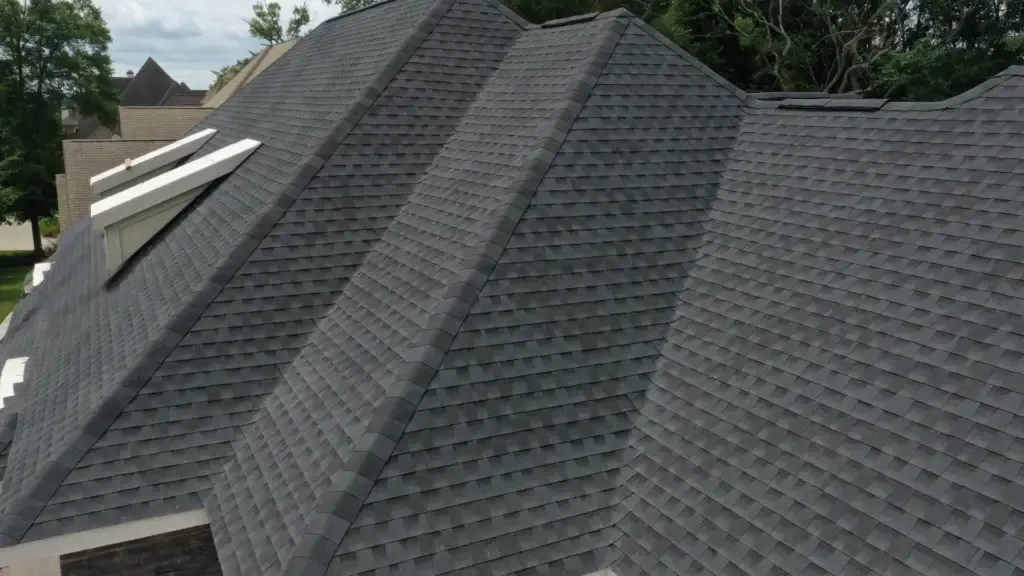
Effects Of Florida’s Climate On Roofs
Florida’s climate poses unique challenges to the durability and longevity of roofs. In this section, we’ll discuss how mold, mildew, and rust, hurricanes and tropical storms, and high heat and sun exposure can all affect the lifespan of your roof.
Mold, Mildew, And Rust
Florida’s high humidity levels create an ideal environment for mold and mildew to thrive. These fungal growths can:
- Damage shingles and other roofing materials
- Break down the underlying structure
- Shorten the lifespan of your roof
To minimize the risk of mold and mildew, you should:
- Ensure proper attic ventilation to reduce moisture build-up
- Regularly clean your roof to remove debris and prevent water pooling
- Use mold-resistant materials, especially in vulnerable areas
Additionally, rust can also be a problem due to the humid climate in Florida. To avoid rust damage, you should:
- Select roofing materials designed for coastal environments, such as metal or tiles that resist corrosion
- Regularly inspect and address any signs of rust or corrosion
Hurricanes And Tropical Storms
Florida is no stranger to hurricanes and tropical storms. These severe weather conditions can:
- Cause wind damage through high-speed winds
- Lead to water leaks and damage the internal structure
- Shorten the life expectancy of your roof
To protect your roof from storm damage, you should:
- Choose roofing materials and designs that can withstand high winds
- Regularly inspect and repair any damage to avoid further deterioration
- Ensure proper installation by using experienced and licensed contractors
High Heat And Sun Exposure
Florida’s intense heat and sun exposure can be detrimental to the overall lifespan of your roof. Prolonged exposure to UV rays and heat can:
- Cause roofing materials to wear out prematurely
- Lead to discoloration and warping of shingles
- Make your home inefficient due to increased energy consumption
To combat the effects of heat and sun exposure, you should:
- Consider using materials with higher heat resistance and reflective properties to minimize heat absorption
- Ensure adequate ventilation to help dissipate heat buildup
- Perform regular roof maintenance to identify and address potential issues early on
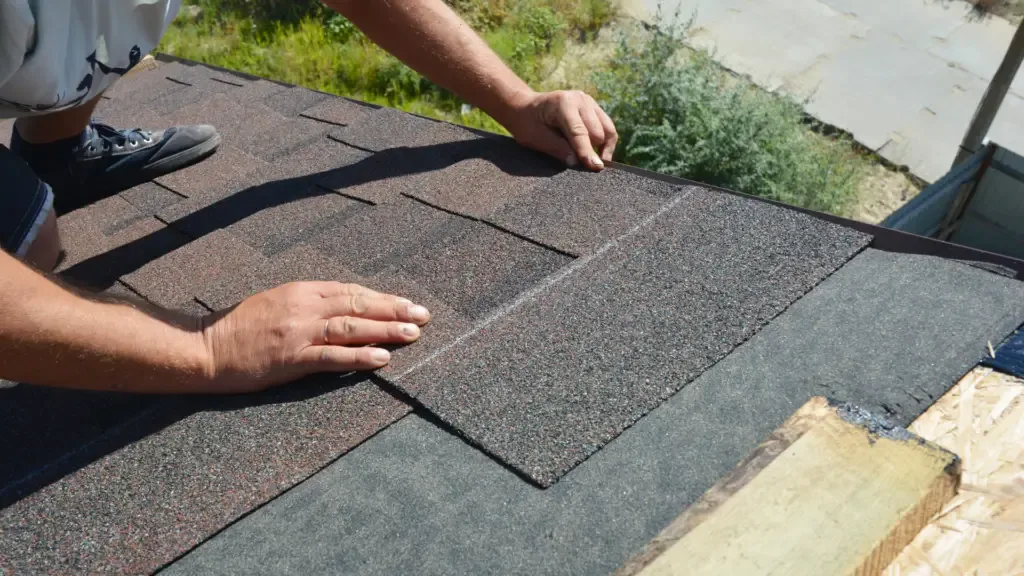
Selecting Roofing Materials And Contractors
Choosing Quality Materials
When selecting roofing materials for your Florida home, it’s important to consider the lifespan and durability of each option. Some common materials and their expected lifespans are:
- Asphalt Shingles: 15-35 years
- Metal Roofing: 40-60 years
Keep in mind that the local climate, such as high humidity, heavy rainfalls, and salt in the air, can affect the longevity of your roof.
To ensure long life, always aim to choose high-quality materials that are designed to withstand the harsh conditions.
Hiring A Professional Roofing Contractor
To guarantee the best outcome for your roofing project, it is crucial to hire an experienced and reputable roofing contractor. Here are a few points to consider when selecting a contractor:
- Credentials: Ensure the contractor is licensed, insured, and has a valid permit to operate in your area.
- Experience: Look for a contractor with a substantial portfolio of completed projects as proof of their expertise in the industry.
- Reviews and Testimonials: Check customer reviews and testimonials to get insights into the contractor’s work quality, customer service, and overall satisfaction.
- Personalized Quotes: Request and compare multiple in-person quotes to get an accurate understanding of project costs and avoid hidden fees.
Remember to be thorough in your research and communication with potential roofing contractors to ensure that you are selecting the best professional for your unique project needs.
Using high-quality materials and hiring an experienced contractor will ensure the longevity and performance of your new Florida roof.

